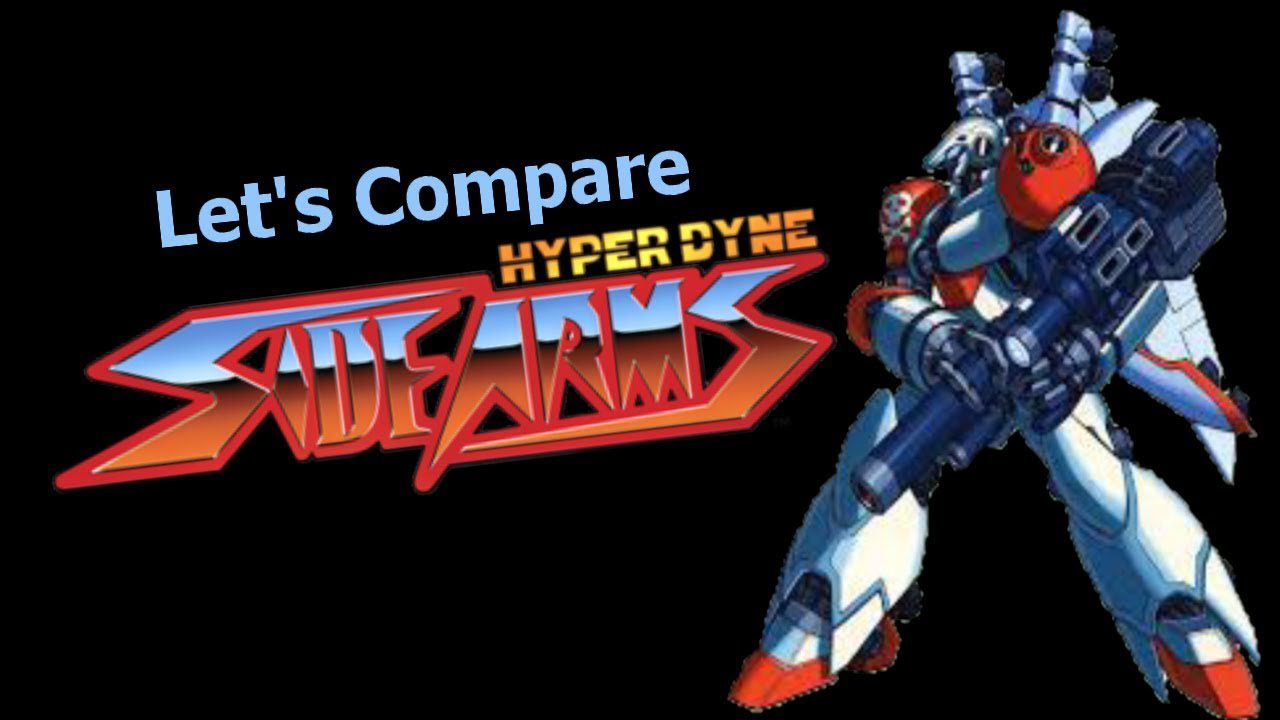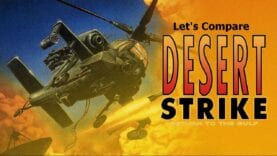Let’s Compare (Desert Strike)
Gaming History Source
Video Locations:
1. Gameboy
Opening 0:42
Gameplay 2:07
2. Game Gear
Opening 4:10
Gameplay 7:14
3. Sega Master System
Opening 9:40
Gameplay 12:48
4. Atari Lynx
Opening 15:38
Gameplay 16:23
5. MS DOS
Opening 19:08
Gameplay 21:34
6. Super Nintendo
Opening 25:07
Gameplay 26:52
7. Gameboy Advance
Opening 13:09
Gameplay 33:04
8. Genesis / Megadrive
Opening 36:07
Gameplay 38:53
9. Playstation Portable
Opening 41:07
Gameplay 43:55
10. Sega CD ( Unreleased Prototype )
Opening 47:37
Gameplay 50:16
11. Amiga
Opening 54:36
Gameplay 57:09
DESCRIPTION SOURCE
https://en.wikipedia.org/wiki/Desert_Strike
Desert Strike: Return to the Gulf is a shoot ’em up video game released by Electronic Arts (EA) in March 1992 for the Sega Genesis. The game was released on several other formats such as the Super Nintendo Entertainment System, including a much upgraded version for the Amiga home computer. The game was inspired by the Gulf War and depicts a conflict between an insane Middle Eastern dictator, General Kilbaba, and the United States. The player controls an Apache helicopter (depicted with the tail assembly of a Comanche) and attempts to destroy enemy weapons and installations, rescue hostages and capture enemy personnel, while managing supplies of fuel and ammunition.
Lead designer Mike Posehn had no video game experience prior to developing Desert Strike. Inspired by Choplifter, he aimed to create a nonlinear game with smoothly animated vehicles. Posehn developed a camera system with momentum to mimic realistic helicopter movements. Three-dimensional (3D) modeling was used to generate the vehicle sprites, which were later touched up on the pixel level with color.
Desert Strike was a commercial success: it was a chart-topping best seller and at the time Electronics Arts’ highest selling game. The game also received a favorable critical response, with several magazines awarding scores of over 90%. Reviewers praised the game’s enjoyability, mix of action and strategy, graphics and sound. There was some controversy regarding the game’s subject matter, with commentators criticizing it as in poor taste due to the proximity of its release to the recently ended Gulf War.
GAME PLAY
Desert Strike is a shoot ’em up game in which the player pilots an AH-64 Apache helicopter (albeit modified with a Fenestron rotor). The game is less frantic than typical shoot ’em ups, with the addition of greater strategic elements. The action takes place on open, multi-directional scrolling levels viewed from an isometric perspective. The player views the action from outside the helicopter, rather than from within the cockpit. The player is also assisted by their copilot, who they can pick at the start of the mission; each copilot plays differently with different skill levels. The best copilot, Lt. Carlos “Jake” Valdez, is missing in action at the start of the game, and can be found and rescued during one of the missions.
Levels consist of several missions, which are based around the destruction of enemy weapons and installations, as well as rescuing hostages or prisoners of war, or capturing enemy personnel. The Apache is armed with a machine gun, more powerful Hydra rockets and yet more deadly Hellfire missiles. The more powerful the weapon, the fewer can be carried: the player must choose an appropriate weapon for each situation. Enemy weapons range from soldiers with small arms, to anti-aircraft missiles to tanks and armored cars.
The player’s craft has a limited amount of armor, which is depleted as the helicopter is hit by enemy fire. Should the armor reach zero, the craft will be destroyed, costing the player a life. The player must outmanoeuvre enemies to avoid damage, but can replenish armor by means of power-ups or by airlifting rescued friendlies or captives to a landing zone. The helicopter has a finite amount of fuel which is steadily depleted over time. Should the fuel run out the Apache will crash, again costing the player a life. The craft can refuel by collecting fuel barrels: the player must therefore plan mission routes carefully in order to maximize efficiency. The helicopter also carries limited ammunition, which must be replenished by means of ammo crates.













